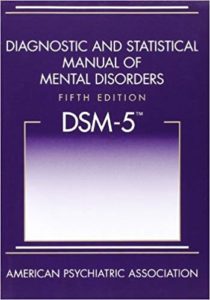It all started in my late teenage years, around 1988. I’d had my adolescent ups and downs, exacerbated by the fact that I had scoliosis and wore a hideous back brace all through high school. But I truly came down with Depression half way through college. Yes, come down with, as in coming down with a cold or chickenpox.
You see, my family is a perfect case study of the genetic predisposition for this bizarre malady we call Depression. According to Stanford Medicine, twin studies suggest that “Heritability is probably 40-50%, and might be higher for severe depression.”
One by one, I’ve seen my father, some of my siblings (I have six of them), and a few nieces and nephews come down with depression.
I had already seen what a severe episode looked like in my dad when I was around 12 years old. He hardly ate or talked, as if moving his face muscles were a mighty effort. He did not walk but shuffle. He lost weight overnight and his clothes were suddenly big on him.
I also knew that my aunt had been in the hospital at least once because of her depression. No one discussed it with us kids, but I’d heard enough to know what was going on.
Over the years, however, I’ve learned that depression need not appear as obvious as I just described. In many cases, one can function with depression. It’s very hard, but you can pull it off – until you can’t.
In college, I functioned with depression for a pretty long time. I got As and Bs and was able to socialize without anyone noticing. But the effort this took was monumental.
Eventually, I developed severe anxiety. When I was in a social situation, I could see the interactions unfolding as if from above. It felt like an altered state of consciousness where your brain cannot be in the present. You must harness so much energy just to remain standing, understand what others are saying and formulate a response.
Most tasks were hard, but the act of socializing was the most effortful of all. Still, as far as I know, no one noticed.
That is, until I came home for a break and either I told my parents or they noticed – I can’t recall which. I went to the psychiatrist that treated my dad and he put me on Med A (made up name!), which actually heightened the anxiety and triggered my first panic attack.
I can’t say exactly how long the medicating process took. What I do know is that, while still in college, I ended up trying Med B, which worked well for me.
 Unfortunately, we didn’t get to this “solution” in time for me to avoid the most hideous, most maddeningly cruel part of depression: suicidal thoughts.
Unfortunately, we didn’t get to this “solution” in time for me to avoid the most hideous, most maddeningly cruel part of depression: suicidal thoughts.
Suicidality is considered a secondary symptom of depression, meaning that it need not be present for a person to be diagnosed with the illness.
Depression affects how you feel, think and act. Suicidality, unlike other symptoms, can obviously cause death if you actually act on the thought. Too often, it does. According to the DSM-5 (Diagnostic and Statistical Manual of Mental Disorders), “Major depressive disorder is associated with high mortality, much of which is accounted for by suicide.”
The trance

My first suicidal thought came one fine day when I was running under a bridge. I can’t describe it well, because the thought was wordless and revealed itself in an instant. Here’s the best I can do: Would it not be a huge relief to jump off this bridge? Does it not make perfect sense to end this suffering?
From the thought of suicide to the action there is much to overcome, luckily. The natural instinct is to cling to life. For many, there’s the fear of God. I, for one, could not overcome knowing how much my mom would suffer. Plus the thought is not constant, so you move on to the next thing.
 I am not unusually afraid of death – for myself or for others. As Seneca, the stoic philosopher, notes, “Every life without exception is a short one.” (Letters from a Stoic) I am, however, terrified of death by suicide, or, to be more exact, of death by depression.
I am not unusually afraid of death – for myself or for others. As Seneca, the stoic philosopher, notes, “Every life without exception is a short one.” (Letters from a Stoic) I am, however, terrified of death by suicide, or, to be more exact, of death by depression.
Suicidality is a trance that blinds you to the possibility that the suffering could end. The trance is so strong that it has this effect even if you know people who have overcome it, even if you’ve gotten over it yourself before! It is indeed a cruel trance.
Since college, I’ve had depression more than once. In fact, it has come back every time I’ve tried to go off medication. This is why I’ve been on meds most of my life ever since I first came down with depression. I’ve wished I didn’t need them, but have accepted that I do. At this point in my life, I’m thankful that a class of meds works for me.
In my case, suicidal thoughts have been a symptom only twice. The second time was also related to a bridge, curiously. There’s an overpass where you first drive into the neighborhood we used to live in in Caracas. You drive up and, at the top, the overpass forks like a V and you must veer left or right. The thought of driving straight into that angle of the V would just pop into my mind and try to persuade me: It could all be over. Just turn the wheel a little and the suffering will end.
Hardly anything saddens me more than hearing about a person who succumbed to this trance. As long as there is life, whatever the cause of the illness, however long it may take, it is almost certain that a treatment (and there’s a lot more beyond meds) that works will be found.
I know Depression well and I recognize its approach like a person who gets migraines recognizes an incipient one. You suffer deeply and in a very peculiar way when in the midst of depression. When it lifts, you will of course continue to experience some pain and suffering – just like any human being. But you will also be able to pursue and experience bliss.
A moment of bliss will make it all worthwhile.

